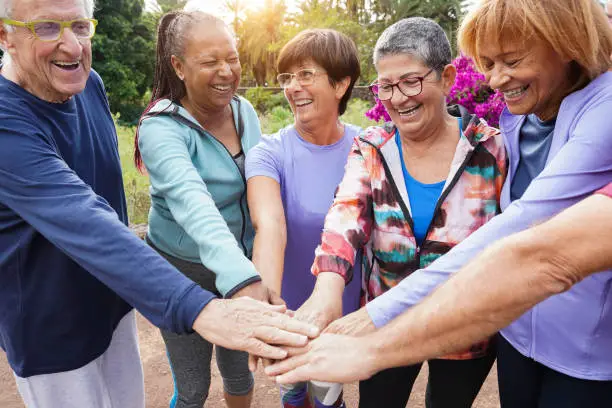U.S. Government Grants for Seniors
As seniors navigate the twilight of their lives, financial challenges can become overwhelming. Rising healthcare costs, property maintenance, home modifications for accessibility, and even daily living expenses can pile up.
Thankfully, the U.S. Government has numerous programs designed to aid seniors in meeting these demands. Let’s explore these opportunities, providing practical examples that will help you secure the support you need.
Section 1: Housing Grants
1.1 HOME Investment Partnerships Program
Administered by the U.S. Department of Housing and Urban Development (HUD), the HOME Investment Partnerships Program offers funding to create affordable housing for low-income households. Seniors, who often live on fixed incomes, can qualify.
HOME provides grants to state and local governments to support various housing initiatives, like building, buying, or renovating affordable housing, or providing rental assistance to low-income people.
For example, in a city like Detroit, which has received HOME grants, the city authorities could use the funds to refurbish dilapidated housing and rent them to seniors at a lower cost.
1.2 Section 202 Supportive Housing for the Elderly Program
The Section 202 program provides capital advances and subsidies to private, nonprofit sponsors to support the provision of supportive housing for very low-income elderly persons. These funds aim to help seniors maintain independence in a safe and affordable environment.
Additionally, grants provide funding for service coordinators who assist residents with daily tasks, creating a well-rounded support system.
Picture this scenario: a senior living in Miami who struggles with mobility could live in a Section 202 funded housing facility. They would have access to an on-site service coordinator who helps arrange transportation for medical appointments, ensuring they get the healthcare they need.
Section 2: Health and Wellness Grants
2.1 Administration for Community Living Grants
The U.S. Department of Health and Human Services, through the Administration for Community Living (ACL), offers grants to support health and wellness programs for older adults. These initiatives include nutrition programs, fall prevention, chronic disease self-management, and mental health services.
Consider a senior living in rural Kansas. They could join a chronic disease self-management program funded by an ACL grant. With this support, they could learn to manage their diabetes better, increasing their quality of life.
2.2 Health Resources and Services Administration Grants
The Health Resources and Services Administration (HRSA) provides a range of grants to enhance healthcare services for the most vulnerable populations. For seniors, HRSA funds programs that aim to improve access to care in rural areas, support healthcare workforce development, and expand telehealth services.
Section 3: Education Grants
3.1 Senior Corps
Senior Corps, a program of the Corporation for National and Community Service (CNCS), offers seniors opportunities to apply their skills and wisdom towards volunteering in their communities. While not a traditional education grant, Senior Corps provides learning and growth opportunities. There are three primary programs: the Foster Grandparent Program, the Senior Companion Program, and RSVP (Retired and Senior Volunteer Program).
Imagine a retired teacher in Phoenix joining the Foster Grandparent Program, where she can apply her teaching skills in local schools. This program provides both an opportunity to serve the community and a platform for lifelong learning.
3.2 Lifelong Learning Institutes
Many universities and colleges offer lifelong learning programs for seniors, sometimes with the aid of government grants. While they do not directly provide grants to individuals, they offer affordable or even free classes for seniors.
Section 4: Accessibility and Home Modification Grants
4.1 The USDA Single Family Housing Repair Loans and Grants
Provides loans and grants through this program to elderly homeowners in rural areas to remove health and safety hazards, or to make home modifications for accessibility.
For instance, a senior in a small town in Iowa could receive a grant to build a wheelchair ramp into their home, making their daily life significantly easier and safer.
4.2 The Weatherization Assistance Program (WAP)
The Department of Energy (DOE) funds WAP to help low-income households, particularly those with elderly members, increase their homes’ energy efficiency, lowering their utility costs.
By understanding these different U.S. government grant opportunities available for seniors, you can identify potential avenues for support. It’s essential to remember that each program has its specific criteria and application process, so thorough research and preparation are key to securing these funds.
Section 5: How to Apply for These Grants
Applying for these grants typically involves finding the appropriate grant, meeting the eligibility requirements, and submitting a well-prepared application. Government websites, such as Grants.gov or Benefits.gov, are excellent resources for information and application procedures. Moreover, agencies like the Area Agency on Aging (AAA) can provide assistance in navigating these processes.
Conclusion
Government grants for seniors exist to alleviate financial pressures and improve their quality of life. Whether you’re a senior citizen, a family member, a caregiver, or an advocate, understanding these resources can go a long way in helping seniors get the support they need.
Remember, help is available – all it takes is a bit of research, preparation, and application to unlock these valuable resources.




